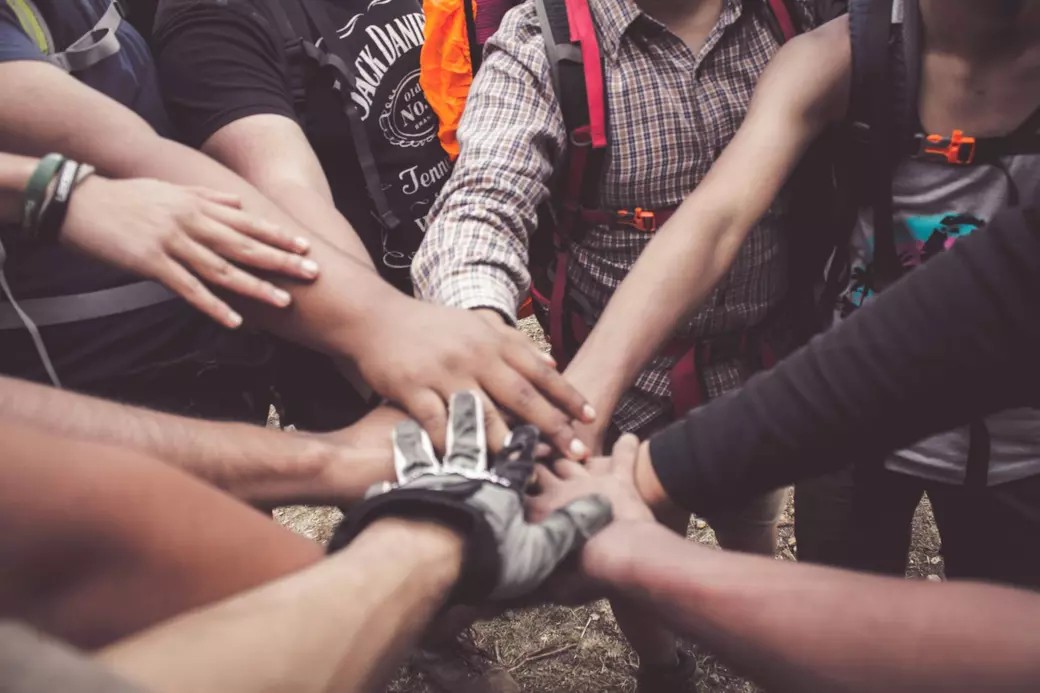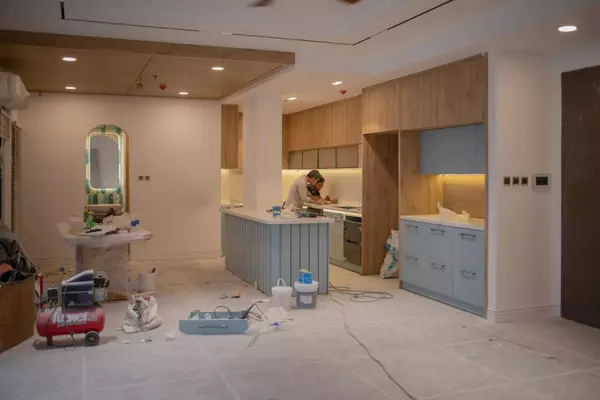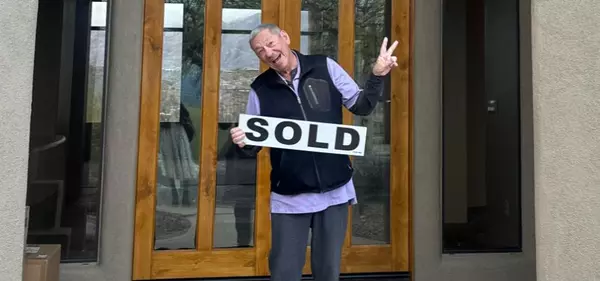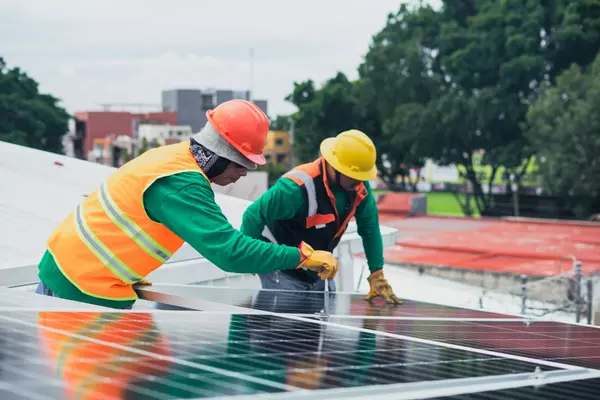How Real Estate Can Be a Partner in Community-Led Development

In today's evolving world, there is a growing recognition of the power of community-driven initiatives in shaping vibrant, resilient neighborhoods. From grassroots movements to local advocacy groups, communities are taking the lead in defining their futures. One key player often overlooked in this equation is the real estate sector. When aligned with community-led efforts, real estate can play a pivotal role in supporting, enhancing, and amplifying local development. At REALgratitude, we believe real estate is not just about transactions—it’s about fostering relationships and building stronger, more engaged communities. In this post, we’ll explore how real estate can be a partner in community-led development and why this collaboration is essential for sustainable growth.
What is Community-Led Development?
Community-led development (CLD) is an approach where local residents take charge of their neighborhood’s growth, making decisions that directly impact their environment, economy, and quality of life. Whether it’s creating more green spaces, improving public infrastructure, or supporting local businesses, CLD puts the power in the hands of those who know the community best.
These initiatives are driven by the idea that residents know their own needs and priorities better than any outside party. They advocate for self-sufficiency, local ownership, and a vision that reflects the unique culture and values of the community. While local governments, non-profits, and social organizations are often involved, real estate has an equally important role to play in ensuring that these initiatives succeed.
How Real Estate Can Support Community-Led Development
Real estate can do more than just provide housing or commercial space—it can be a true partner in community empowerment. Here’s how:
1. Collaborating with Local Stakeholders
One of the most impactful ways real estate can support community-led development is by working hand-in-hand with local stakeholders, such as neighborhood associations, advocacy groups, and residents. This can involve:
- Engaging in Dialogue: Real estate professionals can participate in community forums and planning meetings to understand local needs and priorities. By listening to residents’ ideas and concerns, developers can create projects that truly reflect the community’s vision.
- Tailoring Projects to Fit Local Context: Instead of imposing a one-size-fits-all solution, real estate professionals can adapt their plans to support existing community goals. This might mean prioritizing affordable housing, integrating green spaces, or repurposing vacant lots in ways that benefit local residents.
2. Aligning with Responsible Investors
Many sellers prefer to go to market to find a family for their home, rather than selling to an investor. This helps keep the fabric of the community intact by ensuring that homes remain occupied by long-term residents. However, for some sellers, going to market isn't always possible due to time or financial constraints, making a sale to an investor the best option.
At REALgratitude, we understand these challenges. If you need to sell to an investor, it’s important to choose one who has the community’s best interest in mind. We only align with investors who share our ethos and commitment to uplifting neighborhoods. By doing so, we ensure that even investor-purchased properties contribute positively to the local community, whether through responsible development, affordable rentals, or long-term investments.
3. Setting Rental Restrictions to Protect Neighborhoods
Short-term vacation rentals are on the rise, often reducing the availability of homes for local families. This can drive up housing costs and erode the sense of community. To address this, many neighborhoods are working with HOAs to establish rental restrictions that limit the number of vacation rentals, ensuring that more homes remain available for families who want to settle in the area.
By encouraging HOAs to adopt policies that strike a balance between vacation rentals and permanent residents, real estate professionals can help maintain the character of neighborhoods and make housing more accessible to local families. REALgratitude actively supports communities in setting these types of restrictions, as we believe preserving neighborhood stability is crucial for long-term growth.
4. Advocating for Fairer Tax Policies for Downsizers
Another challenge facing many communities is the lack of tax incentives for seniors looking to downsize. Many long-time homeowners, particularly seniors, feel financially trapped in homes they purchased decades ago due to capital gains taxes and other financial penalties. These restrictions discourage downsizing, even when homeowners would prefer smaller, more manageable homes, and this can contribute to a shortage of available housing for families.
REALgratitude advocates for more favorable tax policies that would encourage downsizing without financially penalizing homeowners. By working with local governments to adjust capital gains and property tax laws, we can help free up larger homes for growing families, while allowing seniors to move into homes that better fit their needs without worrying about financial burdens.
5. Investing in Local Businesses
Strong local economies are essential to thriving communities. By partnering with and investing in local businesses, real estate companies can help foster economic growth that benefits everyone. This could mean:
- Incorporating Local Retailers: Instead of leasing commercial spaces to big chains, developers can give priority to local shops, restaurants, and service providers. This keeps money circulating in the local economy and helps small businesses thrive.
- Creating Space for Entrepreneurs: Real estate can also provide affordable, flexible workspaces that encourage entrepreneurship and innovation, offering opportunities for locals to start and grow their own businesses.
At REALgratitude, we actively support local businesses through our real estate transactions. Every time we close a deal, we partner with local businesses to spotlight their work and drive traffic their way, creating a win-win situation for both the business and the broader community.
6. Prioritizing Affordable and Sustainable Housing
Affordable housing is critical for preventing displacement and ensuring that all community members have access to safe, stable homes. Real estate professionals can partner with community-led development initiatives by:
- Developing Affordable Housing Projects: By working with local governments and non-profits, developers can create housing that remains affordable to long-term residents, helping prevent the displacement that often comes with neighborhood revitalization.
- Incorporating Sustainable Practices: Green building methods reduce the environmental impact of new developments while lowering energy costs for residents. Sustainable housing improves the quality of life for community members and helps build a healthier, more resilient neighborhood.
7. Promoting Community Ownership
One of the biggest fears in community-led development is gentrification and the resulting loss of local control. Real estate professionals can counter this by promoting community ownership models such as:
- Community Land Trusts (CLTs): CLTs allow local residents to own land collectively, ensuring that development benefits the community and that affordable housing remains accessible for future generations.
- Co-Operative Housing: Developers can work with residents to create cooperative housing models that promote shared ownership and decision-making, fostering a sense of pride and investment in the community’s future.
REALgratitude’s Commitment to Community-Led Development
At REALgratitude, we’ve always believed that real estate is about more than just buying and selling properties—it’s about creating lasting positive change. Our journey began with a simple mission: to support our neighbors during the pandemic through our Glendale Gratitude Facebook group. What started as a way to help people connect and offer gratitude for what they had has now evolved into a full-fledged business committed to uplifting communities through real estate.
From the start, we’ve celebrated each real estate transaction by giving back to the local community. Whether it’s supporting small businesses, organizing charity drives, or connecting neighbors with essential resources, we’ve made it our mission to ensure that every real estate transaction we handle leaves a lasting impact on the community.
Now, we encourage our clients to choose a non-profit that benefits from their home sale or purchase, making every transaction an opportunity to contribute to the greater good. And our dream is to expand this model across the globe, working with real estate agents who share our passion for community-building.
A Chain Reaction of Positive Change
Real estate transactions are inevitable, and with the right approach, each one can contribute to a ripple effect of community empowerment and development. By supporting community-led initiatives, investing in local businesses, promoting affordable housing, and advocating for fairer tax policies, real estate professionals can be active partners in the growth and vitality of neighborhoods everywhere.
At REALgratitude, we are committed to being part of this movement. We believe that by aligning our work with the needs and values of local communities, we can build stronger, more resilient neighborhoods—one transaction at a time.
Want to Get Involved?
If you’re a real estate agent, community leader, or simply a passionate advocate for neighborhood development, we’d love to hear from you. Join us at REALgratitude in creating a real estate model that prioritizes community well-being and local empowerment.
Reach out to us at barkley@realgratitude.org to learn more about how you can partner with us in supporting community-led development, or share this blog with someone who believes in building stronger, more connected neighborhoods.
Together, we can make every real estate transaction count.
This version integrates the importance of aligning with responsible investors, setting rental restrictions to protect family housing, and advocating for better tax policies for downsizing homeowners. It further emphasizes how real estate professionals can actively support community-led development in practical, impactful ways.
Categories
- All Blogs (42)
- Affordable Housing (1)
- Agent Advice (2)
- Agent Strategies (2)
- Arizona Homeowner Tips (1)
- Budgeting for Renovations (1)
- Budgeting Tips (1)
- Business Partnerships (1)
- Buyer Negotiation Strategies (1)
- Call to Action (1)
- Campaigns (3)
- Client-Driven Initiatives (1)
- Climate Resilience (1)
- Commission Structures (3)
- Commission Transparency (1)
- Community Development (4)
- Community Engagement (2)
- Community Impact (2)
- Community Partnerships (1)
- Community Support (2)
- Cost Saving Tips (1)
- Curb Appeal Enhancements (1)
- Decluttering Tips (1)
- Desert Landscaping (1)
- Disaster Recovery (1)
- Disaster Relief and Recovery (1)
- Donation & Charity Resources (1)
- Eco-Friendly Communities (1)
- Economic Growth (1)
- Economic Resilience (1)
- Emergency Preparedness (2)
- Energy Efficiency (3)
- Energy-Efficient Upgrades (1)
- Environmental Impact (1)
- Expert Advice (3)
- Family Safety (1)
- FEMA and Government Assistance (1)
- Financial Planning (2)
- Financial Preparedness (1)
- Financing (1)
- Fire & Safety Plans (1)
- First Time Home Buyers (1)
- Getting Involved (1)
- Global Vision (1)
- Gratitude in Hardship (1)
- Green Building Projects (1)
- Green Building Solutions (1)
- Healthy Living Spaces (1)
- Home Additions & Expansions (1)
- Home Buying (3)
- Home Buying & Selling (2)
- Home Buying Tips (3)
- Home Care Essentials (1)
- Home Improvement (8)
- Home Improvement Tips (2)
- Home Maintenance (5)
- Home Organization (1)
- Home Security (1)
- Home Selling (3)
- Home Selling Tips (3)
- Homeowner Resources (2)
- Homeowner Safety Tips (1)
- Homeowner Tips (6)
- Homeownership & Downsizing (1)
- Homeownership Advice (2)
- Increasing Home Value (1)
- Industry Insights (1)
- Innovative Business Practices (1)
- Insurance Tips (1)
- Irrigation & Watering Solutions (1)
- Kitchen & Bathroom Remodels (1)
- Landscaping Tips (1)
- Local Business Spotlight (1)
- Local Business Support (1)
- Local Economy (2)
- Market Adaption (1)
- Market Impact (1)
- Market Impact Analysis (1)
- Marketing (2)
- Minimalism and Simplification (1)
- Mortgages (1)
- NAR Commission Rules (2)
- NAR Regulations (3)
- New Year Goals (1)
- New Year Home Checklist (1)
- New Year Home Refresh (1)
- Organizing and Decluttering (2)
- Outdoor Maintenance (1)
- Pacific Palisades (1)
- Partnership Opportunities (1)
- Personal Finance (1)
- Personal Journey (1)
- Professional Development (1)
- Property Upkeep (1)
- Real Estate & Community Impact (1)
- Real Estate & Economic Growth (1)
- Real Estate & Society (1)
- Real Estate & Sustainability (1)
- Real Estate Advice (5)
- Real Estate Advocacy (1)
- Real Estate Agents (2)
- Real Estate Commissions (1)
- Real Estate Industry Changes (1)
- Real Estate Industry Trends (2)
- Real Estate Insights (1)
- Real Estate Investment (1)
- Real Estate Market Changes (2)
- Real Estate Market Trends (1)
- Real Estate Regulations (3)
- Real Estate Strategy (2)
- Real Estate Tips (2)
- Real Estate Transactions (2)
- Real Estate Trends (2)
- Real Estate with Purpose (1)
- Realgratitude in Action (1)
- REALgratitude Initiatives (1)
- REALgratitude's Story (1)
- Rebuilding After Loss (1)
- Safety and Security (1)
- Safety Upgrades (1)
- Seasonal Home Care (4)
- Seller Advice (2)
- Selling Off-Market (1)
- Small Business Support (2)
- Smart Home Technology (1)
- Social Impact (1)
- Social Impact & Giving Back (1)
- Social Responsibility (1)
- Specials (1)
- Spring Home Improvement (1)
- Sustainability (1)
- Sustainability in Real Estate (2)
- Sustainable Community Outreach (1)
- Sustainable Living (2)
- Sustainable Neighborhoods (1)
- The Power of Generosity (1)
- Vendor Recommendations (1)
- Veterans (2)
- Working with Real Estate Agents (2)
- Yard & Garden Prep (1)
Recent Posts










GET MORE INFORMATION
Founder of REALgratitude™ | DRE# SA695240000 | DRE# 02100184

